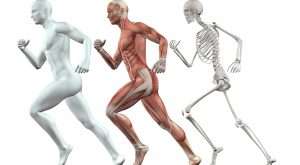The benefits of EPOC include:
1. Sizzle those calories and turn up the burn with EPOC:

When you exercise, your body uses energy (calories) to fuel the activity. During and after exercise, your body needs to replenish its energy stores and repair and rebuild tissues that may have been damaged during the exercise. This requires the body to consume oxygen and burn additional calories, which can elevate your metabolism for a period of time after the exercise has ended. This is known as EPOC or the “afterburn effect.” By elevating your metabolism, EPOC can help you burn more calories and fat over the course of the day.
2. Because who doesn’t want a fit and fabulous heart?

Regular physical activity, including exercises that elevate EPOC, can improve your cardiovascular fitness and overall health. Cardiovascular fitness refers to the ability of your heart and lungs to deliver oxygen to your muscles during physical activity. Improved cardiovascular fitness can lead to a variety of health benefits, including a lower risk of heart disease, diabetes, and other chronic conditions.
3. Turn your muscles into mighty works of art with EPOC:

EPOC can help stimulate muscle protein synthesis, which is the process by which your body builds and repairs muscle tissue. This can help improve muscle mass and strength, which can be beneficial for athletic performance and overall health.
4. The ultimate secret to becoming a genius (or at least feeling like one)?

Exercise, including activities that elevate EPOC, has been shown to improve mental clarity and cognitive function. Physical activity can increase blood flow to the brain and stimulate the production of endorphins, which are chemicals in the brain that can help improve mood and reduce stress. Exercise can also help reduce the risk of cognitive decline and improve brain function in older adults.
5. Who doesn’t want to be the fittest (old) person on the block?

Regular physical activity, including exercises that elevate EPOC, can improve physical function and reduce the risk of physical disability in older adults. Physical function refers to the ability to perform daily activities, such as walking, climbing stairs, and carrying groceries. Improved physical function can lead to increased independence and overall quality of life.
6. The ultimate secret to keeping your blood sugar levels in check (without sacrificing dessert):

Exercise has been shown to improve insulin sensitivity, which is the ability of your cells to use insulin effectively to regulate blood sugar levels. Insulin is a hormone produced by the pancreas that helps regulate blood sugar levels. When your cells are sensitive to insulin, they are more efficient at using glucose (sugar) for energy, which can help keep blood sugar levels in check. Improved insulin sensitivity can help reduce the risk of type 2 diabetes and other chronic conditions.
7. “The afterburn effect”! Turning your sleep into a deep and restful slumber:

Exercise, including activities that elevate EPOC, has been shown to improve sleep quality and duration. Physical activity can help reduce the risk of sleep disorders and improve overall sleep health. Exercise can help regulate sleep patterns and improve the quality of sleep, which can help you feel more rested and alert during the day.
8. The ultimate secret to having bones that can withstand anything (except maybe a sledgehammer)?

Regular physical activity, including exercises that elevate EPOC, can help increase bone density and reduce the risk of osteoporosis. Osteoporosis is a condition that weakens the bones, making them more prone to fractures. Exercise can help increase bone density by stimulating the production of new bone tissue. This can help reduce the risk of osteoporosis and improve overall bone health.
9. Who doesn’t want a little extra protection against cancer?

Exercise, including activities that elevate EPOC, has been shown to reduce the risk of certain types of cancer, including breast and colon cancer. Physical activity can help improve immune function, reduce inflammation, and reduce the risk of chronic conditions that can increase the risk of cancer.
10. Turning your body into a health and wellness powerhouse?

Physical activity, including exercises that elevate excess post-exercise oxygen consumption (EPOC), can have numerous positive effects on overall health and well-being. Regular exercise can help improve physical and mental health, reduce the risk of chronic conditions, and enhance the overall quality of life. It can also help improve self-esteem, mood, and overall sense of well-being. Engaging in regular physical activity can be an important part of maintaining a healthy lifestyle and promoting overall health and well-being.








